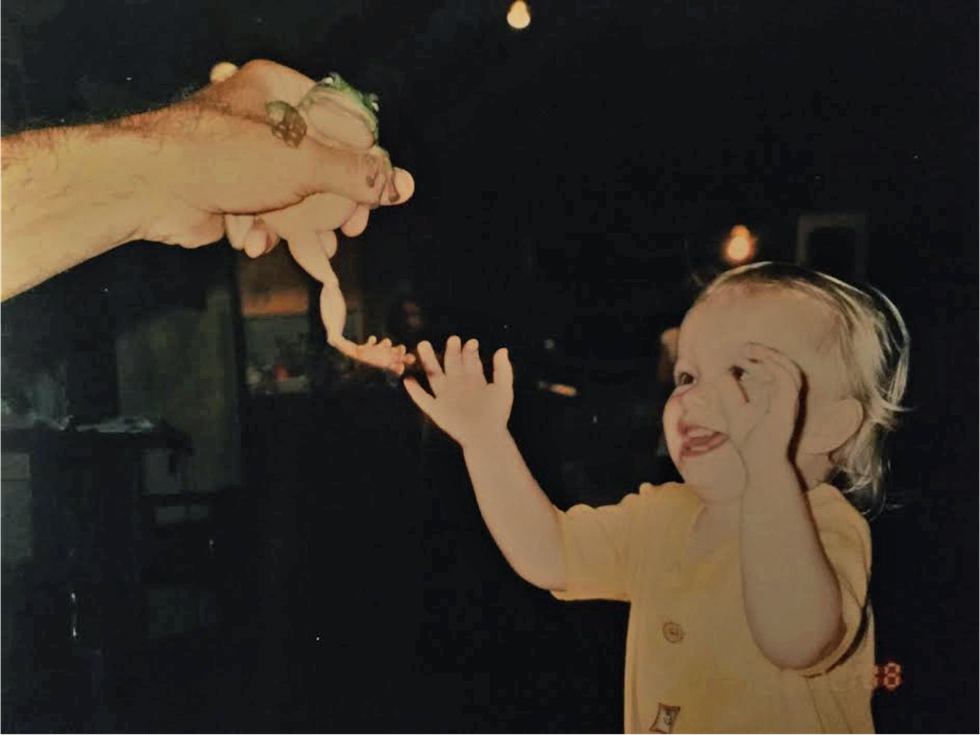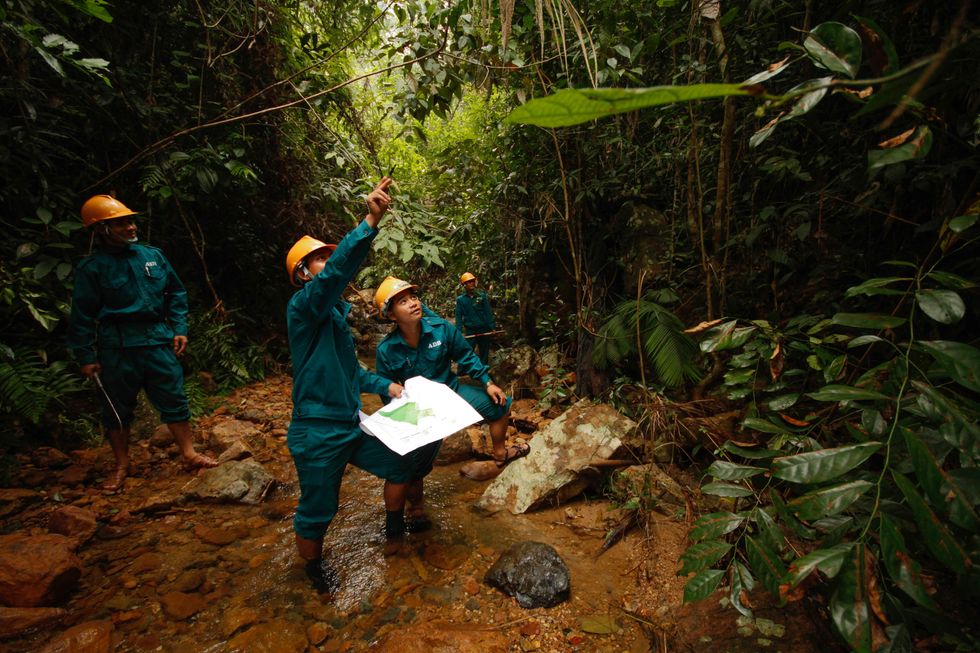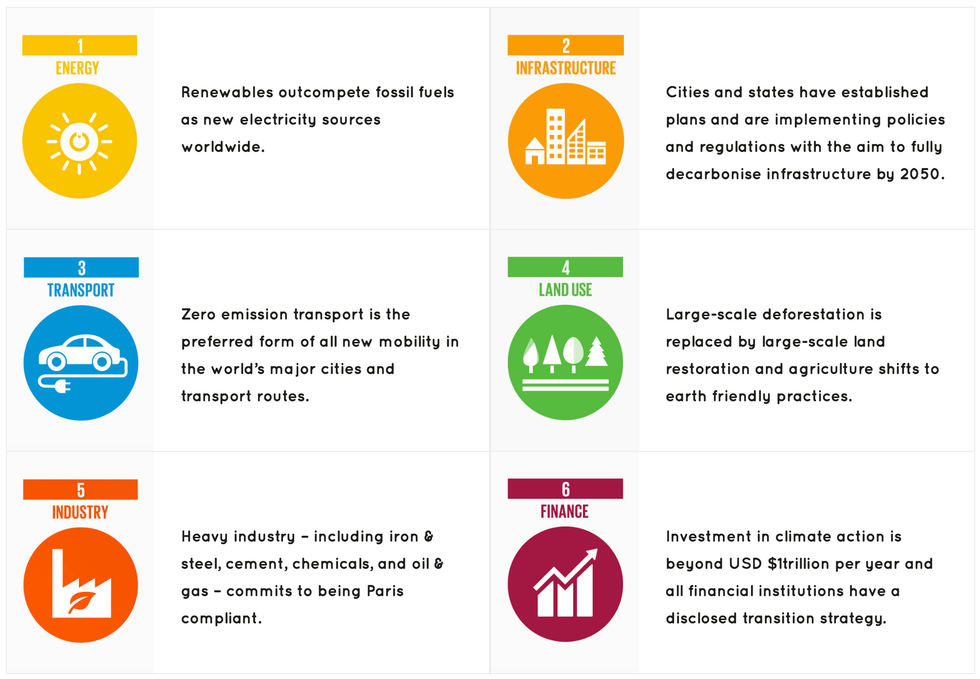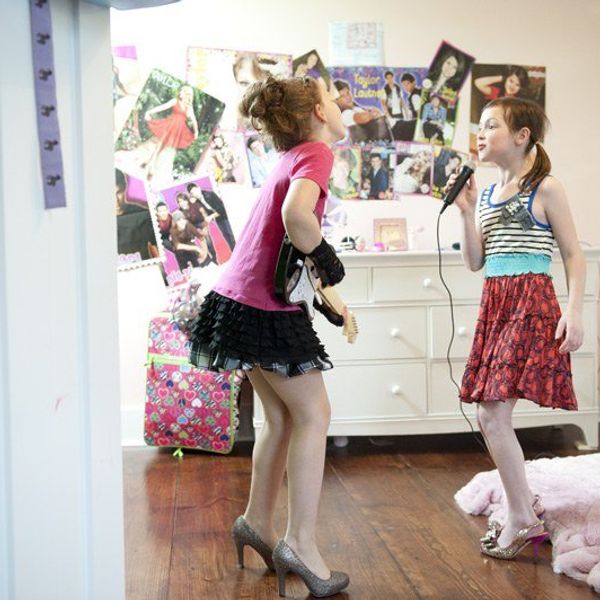You’ve heard it all before. Sea levels are rising, weather patterns intensifying, and species disappearing faster than Trump’s EPA budget.
These issues, plastered in our minds like ugly wallpaper, are fueled not only by a sense of political inaction, but by the universal sense of powerlessness -- dubbed ‘ecophobia.'
I first encountered ecophobia when, at age eleven, I watched Al Gore’s An Inconvenient Truth. My connection with the natural world ran deep (thanks to a childhood spent in Australia’s tropical North Queensland, where I rescued beached sea turtles, cuddled up to scaly things, and fished frogs from the toilet bowl). So this sudden exposure to environmental corruption felt much like discovering Santa was just Dad with a pillow stuffed up his shirt. My days of ignorant bliss were over-- replaced by thoughts of fluffy polar bears clinging to melting ice blocks. I started to question my role in the equation, and think, “What can I do?”
Over the following years, as I became an environmental activist, my love for the wild and wonderful continued to grow-- but so did my ecophobia. At 13, my parents left the Aussie homeland so I could attend Bali’s internationally acclaimed Green School-- where impassioned activists ‘learn by doing’ in wall-less bamboo classrooms shared by long-tailed macaques.
Three years later I quit my bamboo bubble to start my next phase of life in a concrete jungle. Newly arrived in France, I enrolled in a public lycée, and in December of 2015, reunited with my Green School comrades to attend the COP21 in Paris. Already discouraged by months of mainstream education, it was there that I experienced a mini-life crisis, brought on by the political obfuscation of the climate negotiations. I was only able to relieve my frustration by obsessively analyzing my ecophobia -- by realizing that I was not alone. Through my research, I found that the phenomenon boiled down to three core psychological hurdles.
For starters, we’re unable to fully compute the enormity of an issue like climate change. Humans are wired to respond to sudden, intimate attacks. When a tiger leaps at us from the bush (or now, more accurately, when that bearded guy on a skateboard almost runs us down on the sidewalk), we’re wired for fight or flight.
Secondly, we are optimistic creatures; we like to see the world through rose-tinted glasses. If I put those glasses on now and envision life in the year 2050, I see streets paved with solar panels and a flying drone on its way to deliver me a vegetarian pizza. But if I take those glasses off, the scene before me is akin to a dystopian blockbuster.
The cherry on our melted ice-cream cake is that even our best efforts, like sharing an article online, turning off the lights when we leave a room, or making a monthly donation to Greenpeace, will never be enough to make a real impact. We need there to be a universal change in psyche.
Photo credit: Mainstreaming Environment for Poverty Reduction in Viet Nam, Asian Development Bank
Ecophobia is a thorny beast, but there is a light at the end of the tunnel. In fact, there are countless lights -- a.k.a the scientists and thought-leaders who believe the human ambition that landed us in hot water is also capable of pulling us out.
Last month, I met some of these optimists at Google HQ for a panel event hosted by Mission 2020-- the growing global community that has set out to match the COP21 mandated goals across six key industries.
Initially, the cynical gremlin on my back couldn’t help but scoff at how optimistic these goals seemed, particularly given the short timeframe. However, as the climate scientists before me rattled off the milestones we’ve already achieved in recent years, that gremlin started to scratch his chin.
The global economy has continued to grow, yet in 2016:
- Energy-related CO2 emissions were flat for the third year running;
- Wind and solar PV constituted 78% of new capacity in the EU; and
- China invested $88 billion in renewable energy (more than any other country), installing, on average, over one new wind turbine every hour.
- Electric vehicles now account for 15-20% of international car sales and the sector is increasing by 60% each year;
- Norway has committed to zero deforestation in its public procurement supply chain, with many other countries making similar pledges.
- Green bonds are no longer a niche market, having grown by 120% between 2015 and 2016 (to $93.4 bn), with yet another doubling of volumes predicted for 2017.
… and the list goes on.
Perhaps most important is the fact that public concern has skyrocketed. The 2016 election of the Climate Change Denier-in-Chief has certainly been polarising, but political instability has led a swelling number of people to take to the streets -- demonstrating their unease at the country’s direction for the first time in their lives.
Stepping out of that panel event at Google, I felt lighter than I have in a long time. I am still striving to find the balance between being a naive optimist and a self-indulgent cynic, but change is in the air, and it finally seems as if we’re making some headway.
So, next time that sense of ecophobia is lurking at your shoulder, remember that a) you’re not alone in feeling powerless, b) although it feels easier to be cynical, the payoff of being optimistic is far greater, and, without sounding like a fridge magnet, c) we are all capable of changing the world-- for worse or better, that is entirely up to you.
With special thanks to my editor, Louise Smith.









 The minimum wage is not a living wage.
StableDiffusion
The minimum wage is not a living wage.
StableDiffusion
 influential nations
StableDiffusion
influential nations
StableDiffusion












